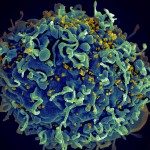About
Vector-borne pathogens like dengue or Zika viruses are transmitted to a human via the bite of a mosquito infected by a previous bite on an infected human. This transmission cycle is responsible for the rapid spread of emerging diseases, as exemplified by the Zika epidemic in Latin America in 2015-2016. The epidemic spread depends on the efficacy of human-to-mosquito-to-human transmission, which is influenced by the combination of host, mosquito and viral factors. This project aims to elucidate the mechanisms underlying Zika virus transmission through an integrated approach that jointly considers the genetic variation of the host, the virus and the mosquito vector, using cutting-edge technologies and biosafety facilities. The goal is to better understand the mechanisms of transmission to identify potential targets for strategies aimed at controlling the propagation of vector-borne infections.











